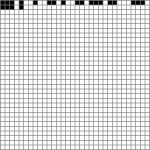electropoetics
Speculative Aesthetics: Whereto the Humanities?
Maria Engberg reviews two books that describe the dialectical relationship between literary production, digital media, and literary reception from opposite ends of the historical and aesthetic spectrum. "Literary paleontologist" C.T. Funkhouser examines the born-digital poetry of the 1950s (and earlier), while Johanna Drucker writes an eye-witness account of the contemporary encounter between print literature, humanities research, and "speculative computing."
Digital Humanities in Praxis: Contextualizing the Brazilian Electronic Literature Collection
In the following essay, Luciana Gattass discusses the formation of a Brazilian Electronic Literature Collection via analysis of works identified in the ELMCIP Knowledge Base. Positioned between the existence of geographical data and the question of a national literature, Gattass considers the role of the human critic in the age of big data.
One + One = Zero – Vanishing Text in Electronic Literature
In “One + One = Zero,” Marjorie C. Luesebrink discusses “fleeting” messages and their implications for electronic literature. Beginning with a discussion of the popular social media app, Snapchat, Luesebrink considers a series of works of electronic literature that employ tropes of vanishing and inaccessibility to represent forgetfulness, limited perception, and the challenges posed by dynamic environments for contemporary readers. After tracing a path through two decades of digital practice, Luesebrink points to a future in which the vanishing text will continue to be a relevant site for literary innovation.
Who’s Left Holding the (Electrical) Bag? A Look to See What We’ve Missed
Recalling ebr's early exploration into "green" and "grey" ecologies, invisible etchings on silicon and massive environmental consequences, Ben Bishop calls our attention to questions of "power" at the heart of our newly digitized critical and creative practices: "Not clout or capability, but electrical power generated by spinning turbines."
Histories of the Future

For Patrick LeMieux, the future of electronic literature is not before us, and instead entails an investigation of the past--of the unknowable territories we collaborate with through e-lit.